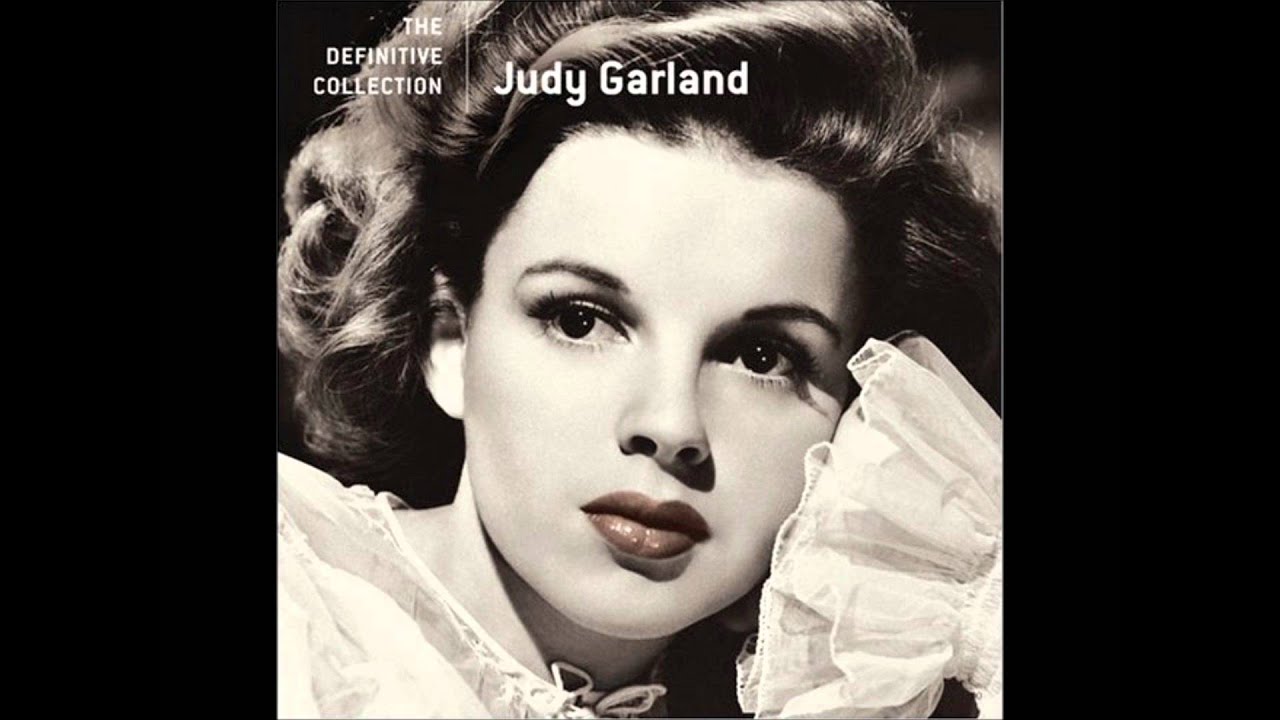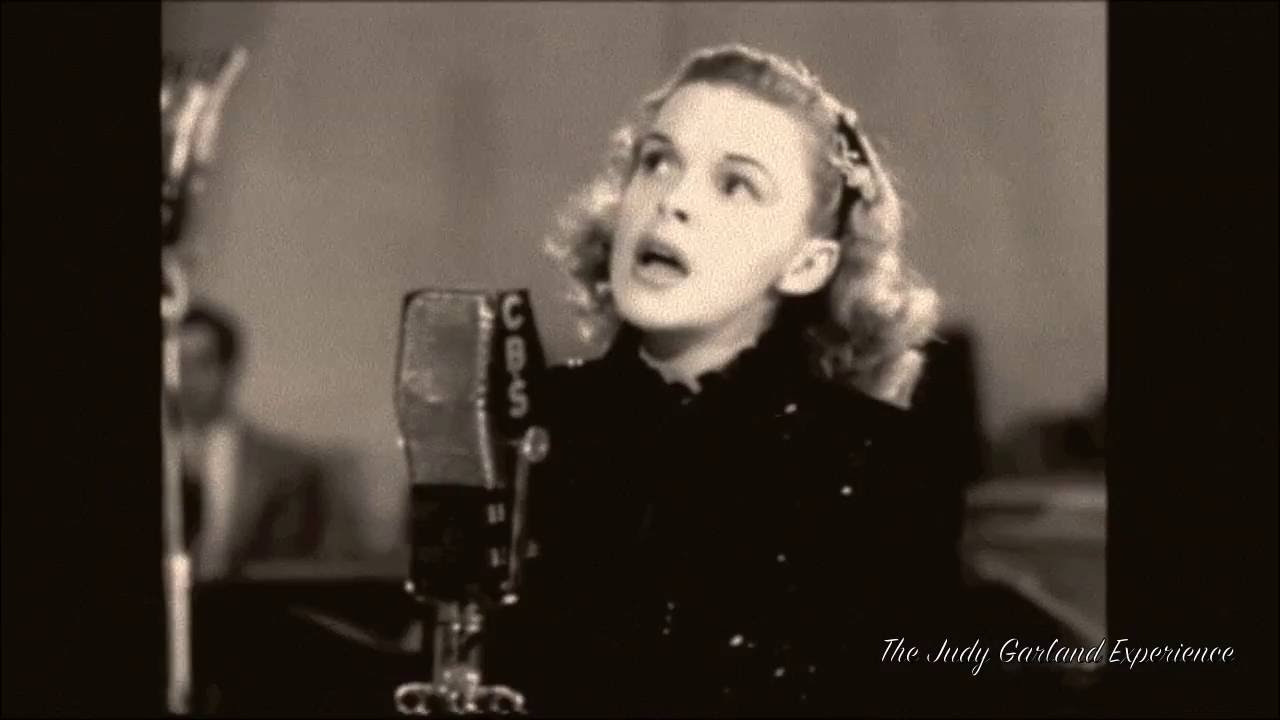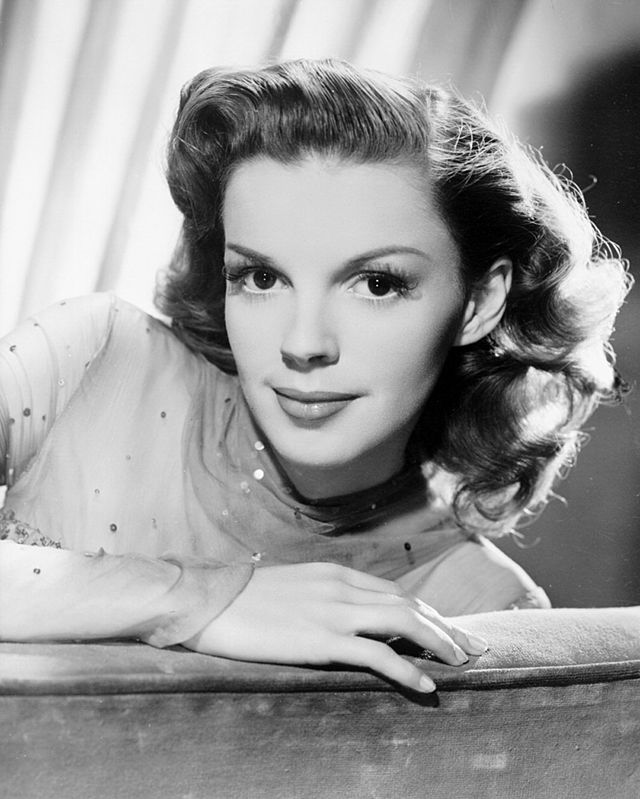Judy Garland Net Worth - The Lovely Baby Gumm
American actress, singer, and vaudevillian Judy Garland net worth is $40k at the time of her death. Judy Garland was a talented vocalist as well as one of the most popular actors in the world during the height of her career. Garland belonged to a time when it was required of actresses to be able to sing and dance, and she was one of the few who could do all of these things equally well.
Author:Alex MercerReviewer:Nathanial BlackwoodAug 30, 202218.1K Shares955.1K Views

American actress, singer, and vaudevillian Judy Garland net worthis $40k at the time of her death.
Judy Garland was a talented vocalist as well as one of the most popular actorsin the world during the height of her career.
Garland belonged to a time when it was required of actresses to be able to sing and dance, and she was one of the few who could do all of these things equally well.
Judy received several accolades and prizes as a consequence of her accomplishments.
These included a Grammy Award, an Academic Juvenile Award, a Golden Globe Award, a Special Tony Award, and several more distinctions.
She started working while she was still a teenager, and she had to pay a price to join the entertainment industry.
Garland experienced drug misuse from a very young age and fought poor self-worth throughout her life.
The renowned actress also struggled financially, which contributed to her incredibly low net worth at the time of her dying.
Top 7 Quick Facts About Judy Garland
| Name | Judy Garland |
| Date Of Birth | Jun 10, 1922 - Jun 22, 1969 (47 years old) |
| Gender | Female |
| Height | 4 ft 11 in (1.51 m) |
| Profession | Singer, Actor, Vaudeville Performer |
| Nationality | United States of America |
| Net Worth | $40 Thousand |
Judy Garland Personal Life
Garland was hitched for the first time at the age of 19.
On the other side, her union to the band's frontman, David Rose, was only very briefly.
On the set of Meet Me in St. Louis (1944), another of Garland's iconic movies, they became acquainted.
After divorcing Rose in 1945, she shortly wed Minnelli.
The couple's daughter Liza was conceived in 1946.
Garland's second marriage, however, only lasted a few months longer than her first.
The Garland-Minnelli marriage was almost over by 1949. (they officially divorced in 1952).
Around this period, Garland started having emotional breakdowns.
Most likely as a consequence of years of nonstop labor and all the meds she used to stay alive, she gained a reputation for being unpredictable and unstable.
In 1950, MGM terminated her contract because of her medical and mental problems.
Garland's professional standing seemed to be slipping.
Judy Garland Death
Garland was discovered dead in a restroom on June 22nd, 1969, by her last spouse Mickey Deans.
She had been born in 1947. Judy's condition had been quickly worsening when she gave her last performances in London and Copenhagen, and an overdose of barbiturates was ultimately found to be the cause of her death.
Garland had taken a very high amount of the medicine over an extended period of time, even though suicide had been ruled out.
The autopsy also found that Garland would have passed very quickly from cirrhosis, a severe decline in liver function, even though this conclusion was subsequently refuted by tests.
Another medical professional opined that Judy had an eating disorder, which may have played a role in her demise.
Career Of Judy Garland
The Gumm Sisters began appearing together in different television shows around 1928.
It was never made apparent why the group adopted the name "Garland Sisters," but a variety of hypotheses eventually emerged.
Eventually, the group changed their name to that.
Songwriter Burton Lane sought out Judy Garland and set up an audition for her at Metro-Goldwyn-Mayer Studios.
Garland received a contract after singing at the audition.
Sadly, the movie company didn't know what to do with Garland.
She was in that uncomfortable "in-between" period between child and adult duties at the age of thirteen.
She was also bluntly informed that she was a "ugly duckling" and that Ava Gardner and Elizabeth Taylor, who were her contemporaries, were physically more attractive than she was.
Despite this, Garland was a gifted actor and vocalist who provided MGM with a sizable stream of revenue.
She was thrust into a demanding schedule, making appearances in movies such as "Loves Finds Andy Hardy," "Babes in Arms," "Andy Hardy Meets Debutante," and "Life Begins for Andy Hardy."
Garland was given amphetamines at this time in order to keep her awake for extended shoots.
She was given barbiturates to put her to sleep when it was time. MGM subsequently disputed this.
Top 4 Songs By Judy Garland
Have Yourself A Merry Little Christmas

Have Yourself A Merry Little Christmas | Judy Garland ♡
Over The Rainbow

JUDY GARLAND at 21 singing OVER THE RAINBOW remastered audio
Somewhere Over The Rainbow

Judy Garland Somewhere Over The Rainbow 1939
Have Yourself A Merry Little Christmas - "Mee

Judy Garland - Have Yourself a Merry Little Christmas
Judy Garland Net Worth
At the time of her death, Judy Garland had an estimated net worth of $40,000.
Judy Garland, an actress and singer who starred in several great musical movies, including "The Wizard of Oz," was renowned for both her prodigious skill and her turbulent personal life.
She made more than $50,000 a year from singing and movies.
When Judy Garland was 13 years old, she signed a movie deal with MGM.
With The Wizard of Oz, she had one of her biggest on-screen hits in 1939.
In 1950, MGM canceled her contract.
In the 1960s, Judy Garland spent more time performing as a singer than an actor.
In 1969, she overdosed accidentally and died away.
The Wizard of Oz, a 1939 motion picture, made over $3,000,000 worldwide.
The movie received a number of Academy Award nominations, including Best Picture, Best Song, Best Score, Best Art Direction, and Best Cinematography.
The 1954 film "A Star Is Born" was another hit with Judy. It brought around $6,000,000.
Several prizes, including Best Costume, Best Art Direction, Best Actor, Best Supporting Actor, Best Song, and Best Score were nominated for the movie.
Salary History
The first contract Judy signed with MGM in 1935 was for $100 per week. Her pay had grown to $500 a week by the time she was selected to play Dorothy in "The Wizard of Oz".
Her coworkers in the main cast earned $3,000 each week.
Judy earned a total of $9,649 from Oz, or almost $190,000 in modern money.
Throughout a large portion of her early career, Judy's mother got a cut of these wages.
Judy may make $15–20,000 per week playing on Broadway in the early 1950s.
That is equivalent to earning $163,000 a week in the present.
She received $100,000 for her role in "The Ford Star Jubilee" in 1955.
Judy received a $200,000 salary and a 10% profit guarantee for her last picture, 1963's "I Could Go On Singing." The movie generated $3 million worldwide.
Judy's most reliable source of income for the most of her life was the $50–$80,000 in song royalties she received each year.
Unfortunately, the IRS and the California Franchise Tax Board had to seize a part of these royalties when they encountered tax issues.
Judy Garland Financial Problems
Judy had major financial issues that placed her in a desperate situation towards the end of her life despite earning millions of dollars at the height of her career.
She amassed so much debt as a result of years of poor financial management mixed with her generosity to friends and family that many of the charitable bequests in her will could not be carried out.
Judy learned she owed the IRS $500,000 only a few years before she passed away.
In today's money, it amounts to almost $4 million.
Her agents, Freddie Fields and David Begelman, were responsible for this via theft and poor management.
The IRS imposed a tax lien on her Brentwood, Los Angeles, residence and started withholding income from her recording deal with Capital Records and other commercial endeavors.
After being forced to sell the house at a significant loss, Judy spent some time moving from hotel to hotel, usually leaving a big payment unpaid.
In 1967, Judy made more than $200,000 during a 27-night run at the Palace Theater in New York.
75 percent of the show's revenue went to her.
Unfortunately, the bulk of these revenues were taken by the IRS.
Liza Minnelli, Judy's daughter, obtained the funds necessary to settle the estate's obligations when Judy passed away.
Her personal belongings, numbering over 500, were auctioned off to raise $250,000 (or nearly $1 million in today's currency).
Additionally, Frank Sinatra gave his own money to pay off the bills.
Top 8 Facts About Judy Garland's Finances
- Made $400k before turning 18, which is equivalent to $7.5m today.
- Earned $100 million over her career, adjusted for inflation.
- During shooting "The Wizard of Oz," I earned $500 each week.
- Toto was the only member of the main cast who earned less.
- I earned $9,649 in total from "Oz," which is equivalent to $190k today.
- At the time of her death, her estate owed $4 million in debt.
- In the 1960s, was earning $50–$80,000 a year from song royalties.
- Her royalties were withheld in part to pay back taxes.
People Also Ask
What Was Judy Garland's Favorite Food?
She loved steak and kidney pie, mashed potatoes with gravy, and a glass of ice-cold Coca-Cola.
She also seemed to like her mother's veggie salad, which makes sense.
A light and delectable French salad dressing with watercress is used, giving the salad a lovely peppery flavor.
Did Judy Garland Wear Veneers?
Dr. Pincus used snap-on "Hollywood Veneers" to cover Judy's front teeth when she developed voids between them in later years.
When performing in front of the cameras for movies and at public events, she wore them.
Who Owns Rights To Judy Garland?
Show of Judy Garland Renee Zellweger wins the "Judy" Oscar; CBS TV USA Rights are for Sale.
The USA Rights/Copyrights for the "Judy Garland Show" CBS 1963/1964 Television Season are for sale.
Las Vegas, NV / Accesswire / February 10, 2020 / These rights are presently held by renowned music producer Darryl Payne.
Conclusion
She was nominated and awarded for her work in a motion film and a stage music CD.
For her role in "A Star Is Born," she received several posthumous awards, including the Grammy for Best Actress in a Motion Picture Musical or Comedy (1955).
For "Judy at Carnegie" (1962), she also received prizes for Album of the Year and Female Solo Vocal Performance (1962).

Alex Mercer
Author
Alex Mercer is a seasoned author and analyst specializing in wealth research, with a keen focus on evaluating the net worth of individuals across various industries. With over a decade of experience in financial analysis and wealth assessment, Alex has developed a nuanced understanding of the factors that contribute to an individual's financial status, from investments and assets to market trends and economic policies. His work involves in-depth reviews and analyses, providing insightful observations on wealth accumulation, management strategies, and the socio-economic implications of wealth distribution.
Throughout his career, Alex has become known for his ability to distill complex financial data into understandable and engaging narratives, making the subject of wealth and net worth accessible to a broad audience. His expertise is not just in numbers but in telling the stories behind them, highlighting the journeys, strategies, and decisions that lead to financial success or challenges. Alex's contributions to the field of wealth research are valuable resources for anyone looking to understand the dynamics of wealth in today's world, offering a unique perspective that bridges the gap between financial analysis and human interest.

Nathanial Blackwood
Reviewer
Nathanial (Nate) Blackwood is a distinguished financial journalist with a decade of experience in net worth analysis. He holds an Economics degree from the University of Finance and a Data Analysis certification, enabling him to blend thorough insights with engaging storytelling. Nate is known for making complex financial information accessible to a wide audience, earning acclaim for his precise and reader-friendly analyses. Beyond his writing, Nate is dedicated to financial literacy, actively participating in educational forums and workshops.
He is the founder of PureNetWealth, a platform that demystifies the financial achievements of public figures by exploring the strategies and decisions behind their fortunes. Nate's work bridges the gap between intricate economic concepts and the general public, inspiring a deeper understanding of wealth dynamics. Follow Nathanial Blackwood for essential insights into the financial narratives shaping our world.
Latest Articles
Popular Articles


